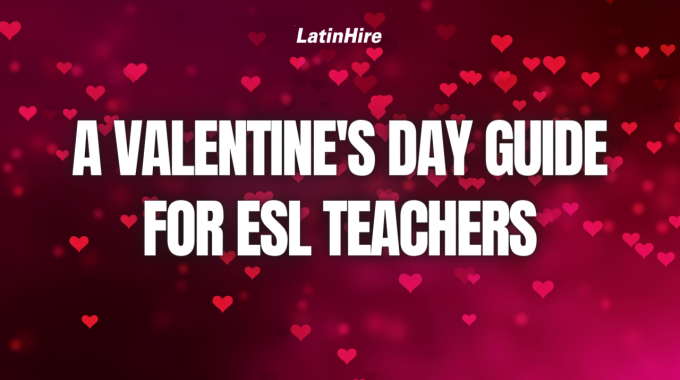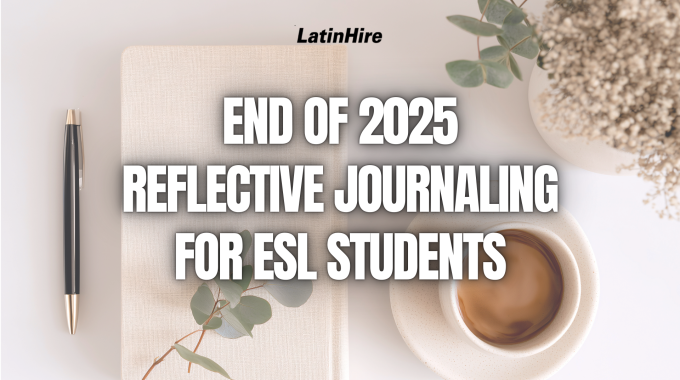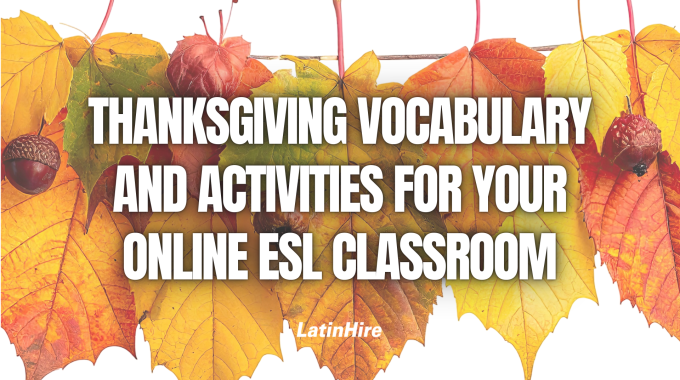As 2025 comes to a close, December offers the perfect opportunity to slow down, reflect…

A Valentine’s Day Guide for ESL Teachers
Valentine’s Day is not just about roses, chocolates, and romantic dinners; it’s an excellent opportunity to explore the wide range of human emotions and relationships. As ESL teachers, we have the opportunity to not only teach the English language, but also to foster a deeper understanding of culture and knowledge. Take this week with Valentine’s Day as an opportunity to have classroom discussions about the different types of love.
In this article, we’ll delve into the various forms of love and also share activities you can use with your ESL students. These types of love originate from ancient Greek philosophy and can serve as great discussion topics to spark your students’ thinking and keep them engaged.
1) Eros – Romantic Love

Eros, the passionate and romantic love, is perhaps the most familiar to many. It’s the intense, emotional connection that often characterizes the early stages of a romantic relationship. This type of love is displayed frequently in the media through music, movies and poetry.
You can run an activity with your ESL students to analyze and discuss how Eros love is depicted in various forms of entertainment and media. This would be a great opportunity to also discuss the cultural differences in displaying Eros love. Are there commonalities across these cultures? Find out together!
2) Agape – Unconditional Love
Agape, often considered the highest form of love in Greek philosophy, is selfless and unconditional love. It extends beyond romantic relationships to encompass compassion for all humanity. Agape love is often associated with divine love, and its connection to God is frequently explored in religious and philosophical contexts.
ESL teachers can guide students to explore acts of kindness, charity, and community service, fostering a sense of empathy and altruism. Brainstorm ways with your class to demonstrate agape love in the community. Little acts of kindness can all make a big difference in the lives of others!
3) Philos – Friendship Love

Philos love, often referred to as brotherly love or friendship love, emphasizes deep companionship, loyalty, and shared interests among individuals. This form of love is commonly found in friendships, close relationships, and connections built on mutual understanding and respect. Philos love is characterized by a sense of shared purpose, making it a valuable and enriching aspect of human relationships.
In your ESL classroom, you can use the Friendship Interview activity with your students to demonstrate Philos love. In this activity, students interview a classmate to learn more about their background, interests, and experiences. They can then present their findings to the class, highlighting the commonalities and bonds that formed during the conversation.
4) Storge – Familial Love
Storge is the love within families, characterized by affection, familiarity, and loyalty. This type of love is considered a natural and instinctual form of love between family members. Unlike some other types of love, storge is often more subdued and doesn’t necessarily involve intense passion or romantic feelings. Instead, it encompasses a strong sense of belonging and commitment to supporting and caring for one another.
ESL teachers can incorporate family-themed discussions, storytelling, or even family tree projects to help students explore the unique dynamics of Storge. Have students share about their family histories and traditions as well as discuss how familial love and values vary across different cultures.
5) Pragma – Enduring Love

Pragma is the mature, enduring love found in long-term relationships. It is characterized by a rational and sensible approach to love and is grounded in practicality and compatibility. Pragma love tends to develop over time as individuals get to know their partners on a deeper level, while aligning their values, lifestyle, and long-term objectives. The focus of pragma love is to stay in love, not just falling in love.
ESL teachers can engage students in discussions about what makes an enduring, successful relationship. Themes of communication, compromise, mutual growth, patience and tolerance may come up as well as other unique ideas your students will have. Brainstorm as a class the different ways to nurture and cultivate pragma love by creating a concept map or word web together.
6) Philautia – Self Love
Philautia encompasses both self-love and self-respect. It emphasizes the importance of taking care of oneself, nurturing one’s well-being, and maintaining a positive self-image. Philautia is considered crucial in fostering overall mental and emotional health, contributing to a balanced and fulfilling life.
As a heartwarming and reflective exercise, you can ask your ESL students to write a love letter to their former selves. This prompts students to reflect on their personal growth, triumphs, and the lessons learned along the way. By expressing gratitude and appreciation for the person they once were, students not only enhance their language skills but also foster a positive self-image.
7) Ludus – Playful Love

Ludus introduces the element of playfulness and flirtation into the complex landscape of love. Often associated with the initial stages of romantic connections or casual relationships, Ludus captures the excitement and spontaneity that makes love feel like a delightful game. Although Ludus is normally correlated to flirting and teasing in the early stages of a relationship, it can also refer to the playful affection between friends and between children.
An activity you can use in your ESL class is “Speed Dating”. Ask your students to create 5-10 questions they want to ask their classmates. Pair them up and give them five minutes to ask each other those questions. Then, they switch partners. Repeat this until each student has completed this activity with four or five other students.
Are there any other activities you have used in your classroom for Valentine’s Day? Share them in the comments below!



